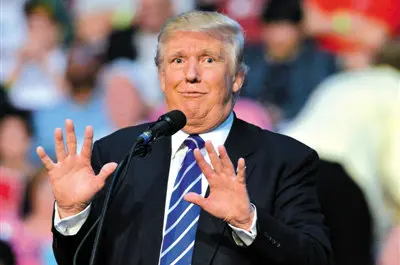By APD Writer Liu Yang
Old wounds were torn open in the idyllic town of Charlottesville, Virginia over the weekend, where hundreds of white supremacists, neo-Nazis and KKK members gathered after the city council decided to remove a statue of Confederate general Robert E. Lee.
They rallied in Friday evening, marching through the city with lit torches in hand, chanting slogans such as
“You will not replace us” and “blood and soil”.
The rally escalated Saturday, when anti-protesters armed with clubs and shields descended onto the city, clashing with the white nationalists on the street.
Local authority, who permitted the march by the white nationalists, was caught off guard by the unfolding events, and failed to break up the two parties who in their brawl have injured 14 people.
Even after a state of emergency was called on the city, police were unable to immediately quell the unrest, giving chance to a 20-year-old Ohio man to plow his car into a group of anti-protesters, killing a 32-year-old woman and injuring 19 others.
Two other officers were killed later in the day when the helicopter they operated to patrol the city crashed near the protesting site.
As the country reeled from the most violent racial-related clash since the inauguration, Trump added fuel to the debate when he said both the left and the right were to blame for the violence.
“I think there's blame on both sides. I have no doubt about it, and you don't have any doubt about it either," Trump said Tuesday during a press conference in Trump Tower in New York city.
"You had a group on one side that was bad, you had a group on the other side that was also very violent, but nobody wants to say that," Trump said.
Trump also said the trend of abolishing memorials of figures associated with slavery was concerning, “So this week it's Robert E. Lee. I noticed that Stonewall Jackson's coming down. I wonder, is it George Washington next week? And is it Thomas Jefferson the week after?" he said, adding "where does it stop?"
But Trump’s remarks were soon drowned in wave of scathing attacks from both the left and establishment Republicans, who demanded that Trump stand more forcefully against white nationalists.
“Mr. Trump has repeatedly pulled his punches when it comes to white nationalists,” the New York Times noted in an editorial, adding that Trump is the root of the problem.
Digging deeper than the heated back-and-forth, identity politics is contributing to the conflict, according to Perry Bacon Jr., a writer for the political website 538.
U.S. citizens of different race and political affiliation tend to have drastically different view on the state of discrimination, according to Bacon.
Republicans were more likely than Democrats to see the white and Christians as being discriminated against, while Democrats were more likely than Republicans to see minority’s rights being violated.
Stemming from this believe, many white Americans are disgruntled by affirmative action policies, a form of reverse discrimination, and the rise of “black lives matter” movement.
Trump has tapped into this sentiment during his ascend, but it is unclear whether he will find a way to bring the fractured country back together, or encourage nationalism to serve his own political interest.
LIU Yang is the researcher of APD Institute, an editor at the English desk of International Department of Xinhua News Agency and have worked in Xinhua's Damascus office for three years.
(ASIA PACIFIC DAILY)
 简体中文
简体中文

